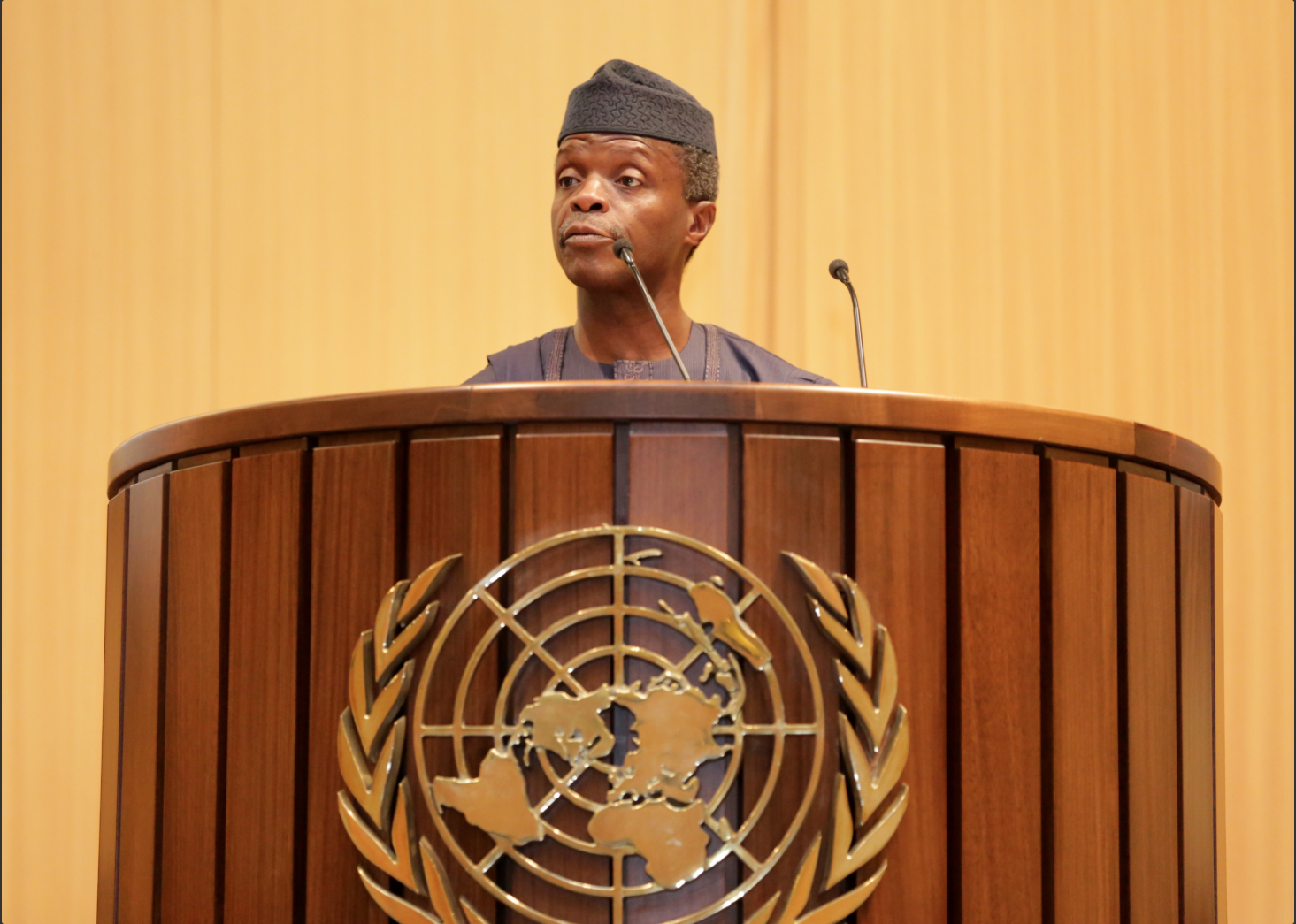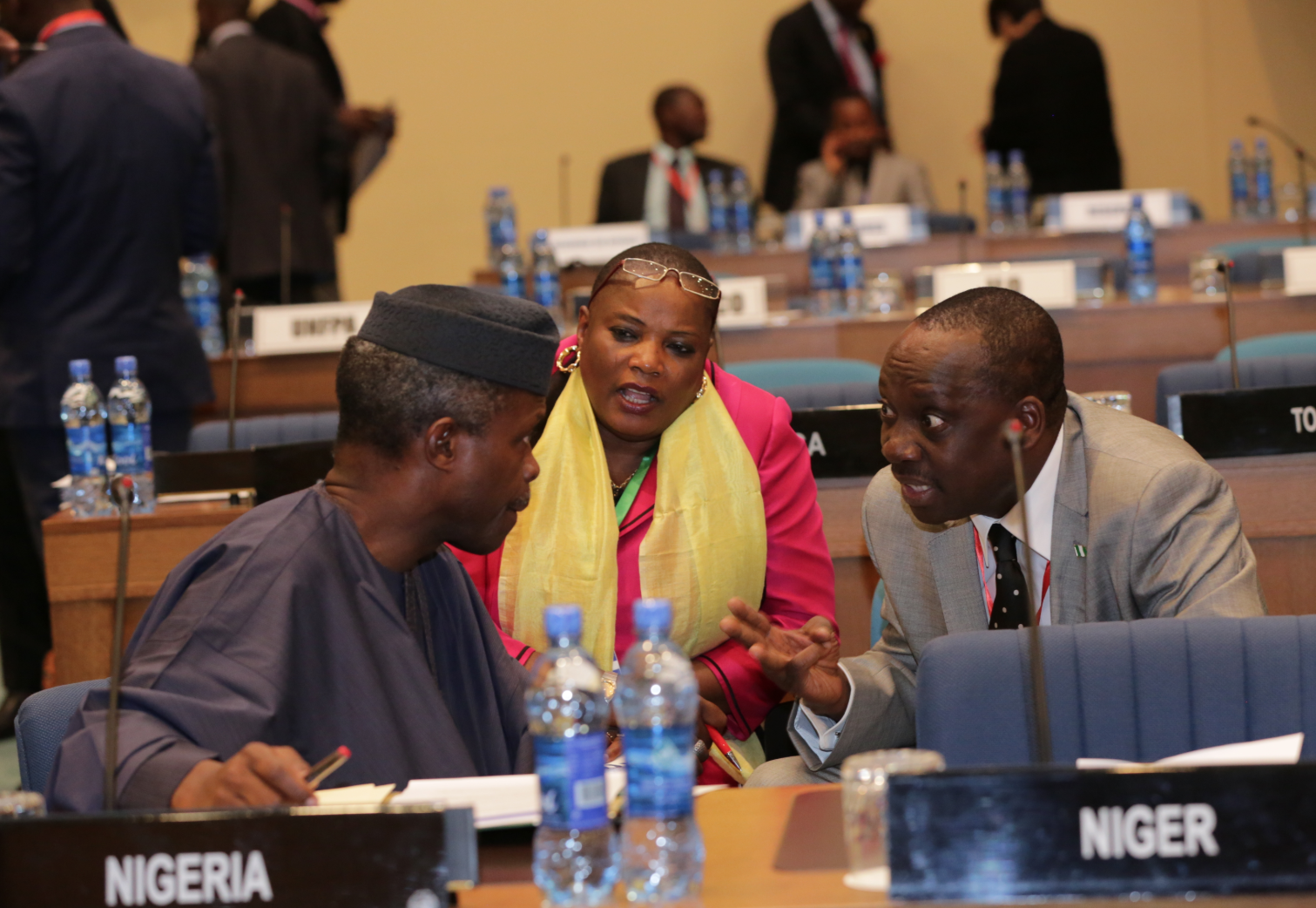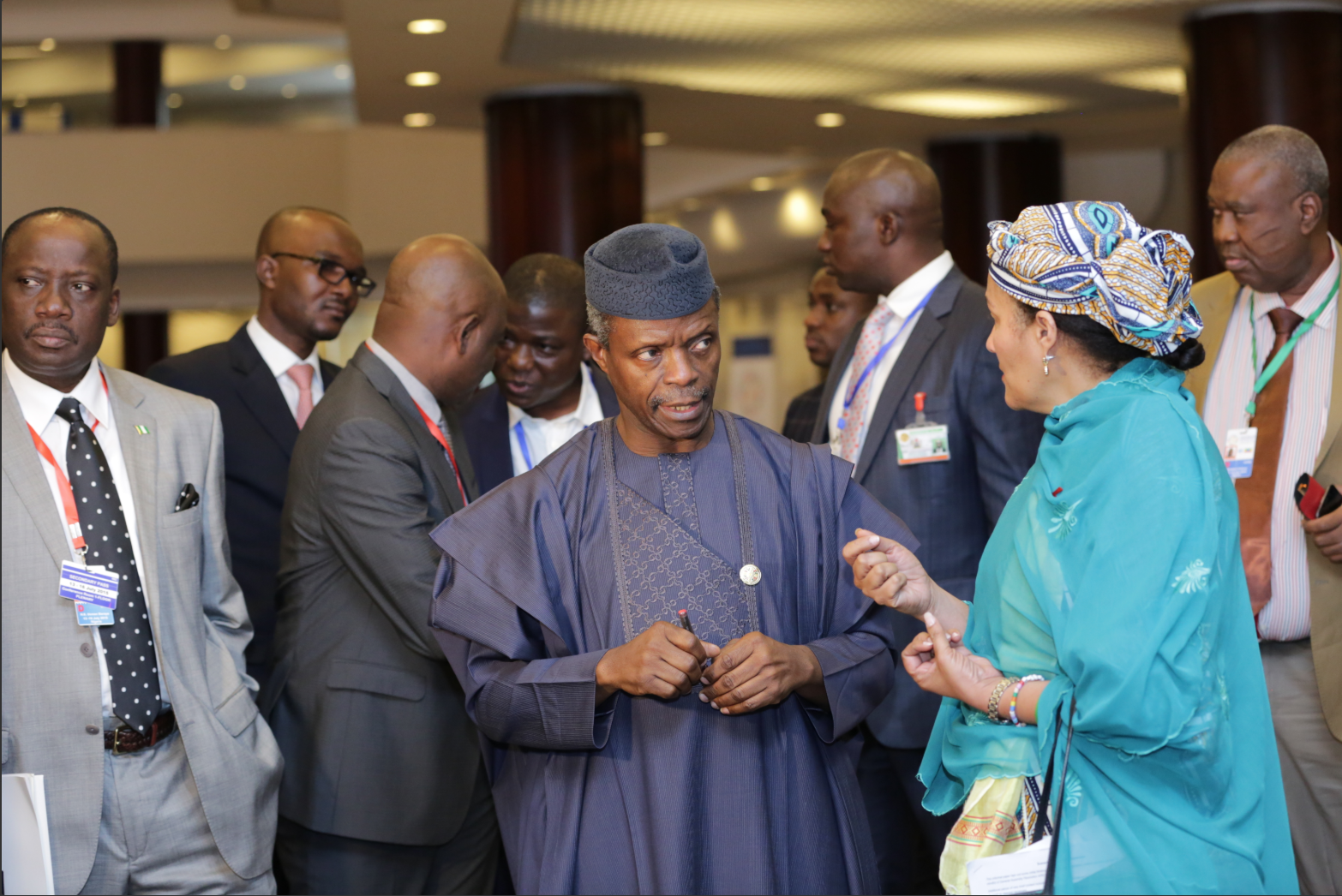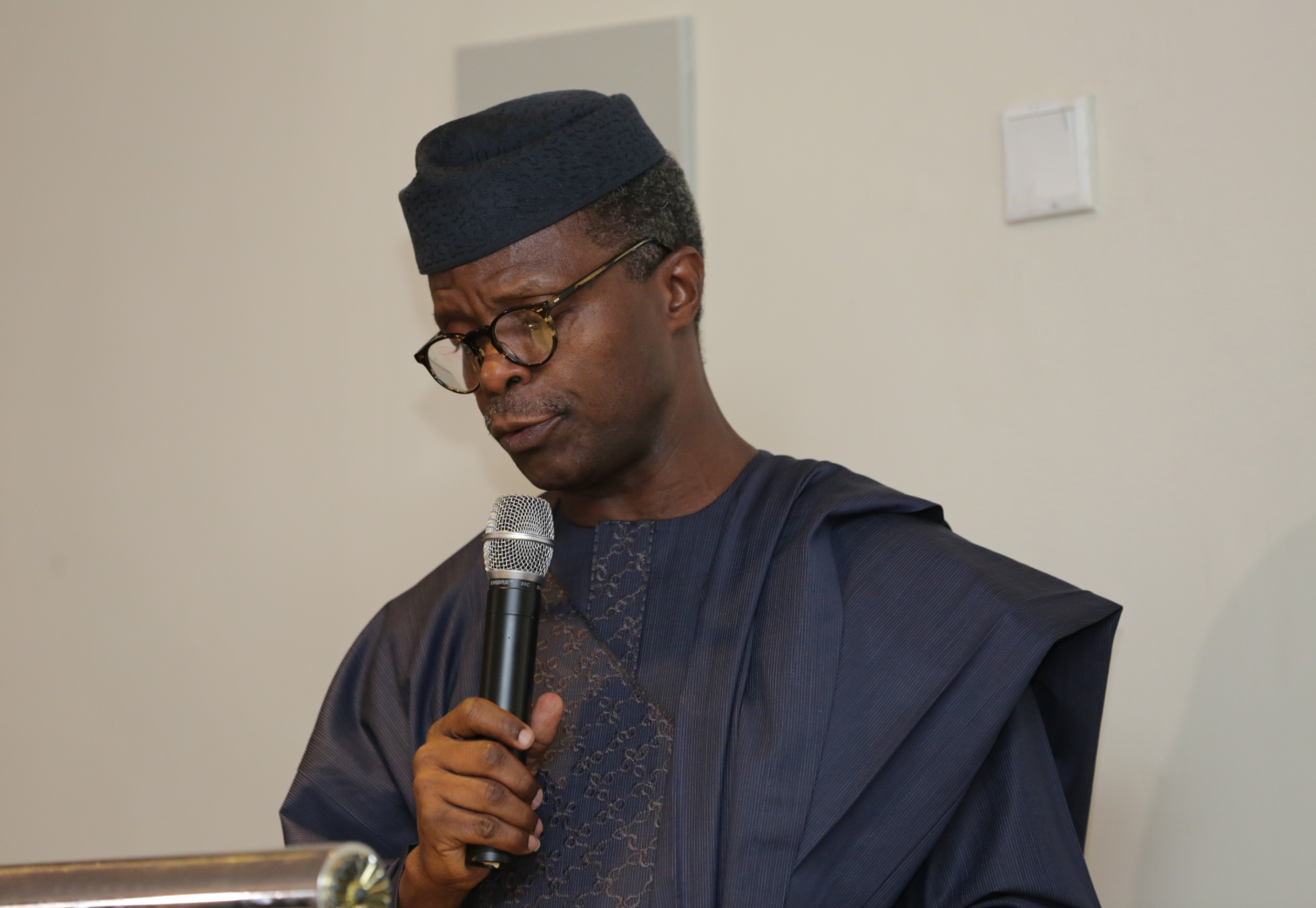The United Nations Conference On Financing For Development
REMARKS BY HIS EXCELLENCY, PROF. YEMI OSINBAJO, SAN, GCON, VICE PRESIDENT, FEDERAL REPUBLIC OF NIGERIA, AT IATI SIDE EVENT OF THE UNITED NATIONS CONFERENCE ON FINANCING FOR DEVELOPMENT AT ADDIS ABABA, ETHIOPIA ON TUESDAY JULY 14TH, 2015.
PROTOCOLS
Thank you very much for this opportunity to speak on the membership and benefits of International Aid Transparency Initiative. Gratefully, Ms Helen Clark made the welcome remarks ahead of me. Nigeria recently joined the IATI as its 25th member. That the IATI has achieved membership of 25 states in 7 years underscores the importance of the Initiative, and we are proud of and committed t our membership as well as the ideals of IATI.
The objectives of IATI are as laudable as they are vital and beneficial. The clarity, accuracy and dependability of data are one of the most important tools in mobilizing and monitoring financing for relevant and sustainable development. Our experience in Nigeria, especially through our National Planning Commission shows that credible data is critical to securing and maximizing available aid financing, allocation of resources, and efficiency. Increased disclosures paint a clearer picture, and a clearer picture supports resourcing needs in a more strategic and meaningful manner. We recognise this and understand that the standards IATI promotes are helpful to our budgeting, planning and policy development, accurate demography, allocation of resources, openness, visibility, transparency, and more effective tracking and monitoring by citizens, lenders, partners, donors and receivers.
Our guiding principles of transparency, accountability and saving costs, including, by running a leaner government, provide strong motivation to make the best of the opportunities and standards provided by IATI. IATI standards or frameworks on citizens’ monitoring and evaluation as well as other mechanisms that promote accountability will be helpful in addition to our established protocols. These positive outcomes and the efficiency that come with better data, elimination of the need for timeouts and expensive needs assessments and gap analysis are further expectations Nigeria hopes to expand on as a benefit of its membership of IATI.
Nigeria, like many parts of the world, has its own share of critical infrastructure and other millennium goals deficits. Financing on the other hand is not in excess of the need. Indeed, financing itself constitutes a gap based on demonstrated need. Openness and disclosures that help bridge this gap are not only welcome, but also essential.
In February 2014, Nigeria began the world’s first federal Open Data Initiative to simultaneously launch inclusive and continuing consultations with both government and non-government communities on our Open Data priorities. The initiative when concluded is expected to open up high-value data-sets from across government ministries to Nigerian citizens, businesses and rest of the world, for free. Prior to that, Nigeria enacted the Nigerian Extractive Industries (NEITI) Act in 2007, institutionalizing the NEITI, which commenced in 2004.
A key mandate of NEITI is to ensure a regime of transparency, accountability and due process in the management of extractive revenues paid to, and received by the government, as well as see how the revenue is used to reduce poverty for overall development. NEITI principles constitute significant guidance in developing new petroleum industry legislation, which is currently ongoing. Also, NEITI has made appreciable progress in promoting disclosures and transparency in an otherwise opaque oil and gas industry. NEITI has also assisted with recovering substantial sums of money primarily from underpayments, underassessment of taxes and royalties through the visibility it has engendered.
Another accomplishment by Nigeria was the promulgation of the Freedom of Information Act in 2011, which created a statutory right to information, records and documents in the custody of government and private entities discharging public function.
Our experience with these openness initiatives demonstrates that they constitute important measures for governance, inclusiveness and participation, collaboration with funding partners, access to expanded financing alternatives, and most of all, achieving our national priorities and aspirations as well as developmental goals.
The major challenge with benefiting maximally from these initiatives is the Political Will to run an open and transparent government. That ‘Will’ may vary from government to government in the same country. And this may give the impression sometimes of a recursive trajectory one-step forward, several backwards.
However, the bright side is simply this – membership of this Openness Initiative provides data and opens up opaqueness – the light is turned on in dark and opaque places. In the end, corruption and mismanagement can only hide for a while, everyone knows it, especially perpetrators.
Thank you for listening.





